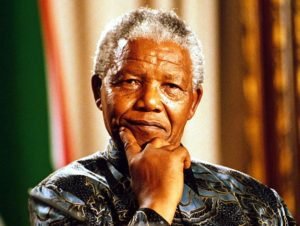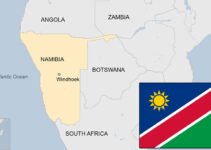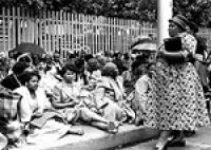As the sun paints the South African sky on February 27th, the whispers of the past echo in the air. Like many threads woven into the nation’s vibrant tapestry, this date holds stories waiting to be unearthed. We embark on a journey of exploration, delving into the triumphs, tragedies, and turning points that mark February 27th in South Africa’s history.

1990: Mandela visits Zambia
In February 1990, Nelson Mandela began a 17-day foreign visit, his first since 1962. He went to the African National Congress headquarters in Lusaka, Zambia, where he met with exiled ANC leaders, Commonwealth representatives, and leaders of the Frontline states. During his visit, Mandela rejected a suggestion from Zambia’s President Kenneth Kaunda that the ANC should suspend its armed struggle.
1958: Former Springboks player, Naas Botha is born
Hendrik Egnatius Botha, one of the best South African rugby players of all time, was born on February 27, 1958, in Breyten, Mpumalanga. He played for the South African under-20 rugby team while studying at the University of Pretoria. Botha played his first international rugby match at the age of 22 against South America, marking the start of his 12-year international rugby career. Best known for his kicking prowess, Botha won 28 caps during his career with the Springboks and was the highest scorer in South African rugby history with 312 points, until his record was broken in 2004. Botha retired in 1995 and now works as a rugby commentator.
1978: Robert Sobukwe, first president of the Pan Africanist Congress (PAC), passes away.
Robert Mangaliso Sobukwe, founder and first president of the Pan Africanist Congress, passed away in February 27, 1978 due to lung complications. He had been hospitalised in 1977 and his doctors requested that he be granted freedom of movement on humanitarian grounds, but it was denied. Today, PAC members celebrate this day as Sobukwe day.
1881: Boers defeat the British at the Battle of Majuba during the First Anglo-Boer War
In an effort to bring about the federation of the South African colonies, Disraeli’s Conservative government annexed the South African Republic in 1877. An Afrikaner revolt in December 1880, led by Paul Kruger, prompted the First Anglo-Boer War, which ended with the defeat of the British at Majuba Hill on 27 February 1881. This brought temporary peace, but the British regarded it as a ‘freak’ victory and vowed retribution. The Transvaal War was a ‘curtain-raiser’ to the far more ruthless Anglo-Boer War of 1899-1902.
1864: Bethlehem, Free State, is founded
The town of Bethlehem, which is nestled in the Maluti Mountains in the Free State Province, was founded in either 1864 or 1869 (depending on the source). After it was founded, it became one of the rapidly growing towns. This was mainly due to its rail connections with Johannesburg, Harrismith and Bloemfontein. The town’s name has its roots in Hebrew and means “house of bread”. This is because the town is blessed with fertile land where wheat grows abundantly.



